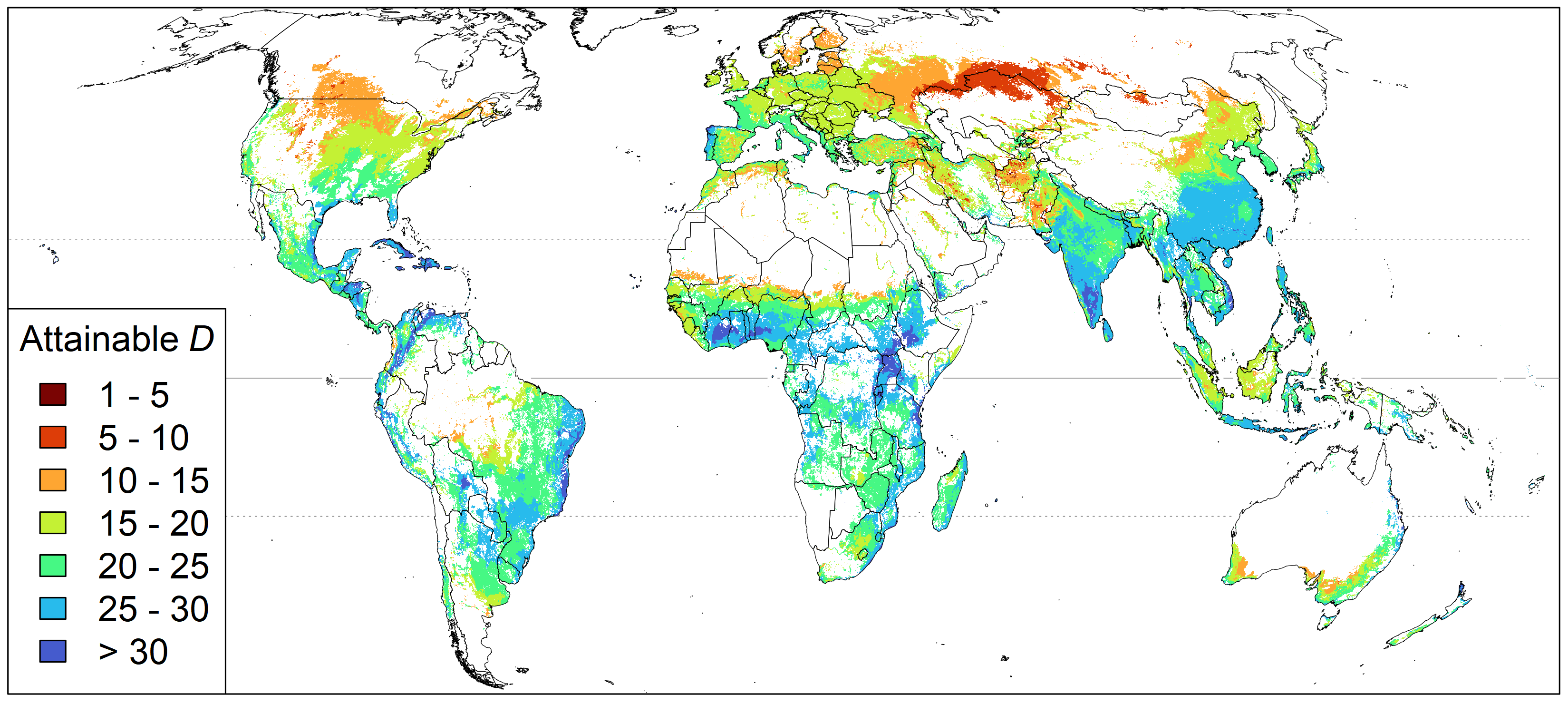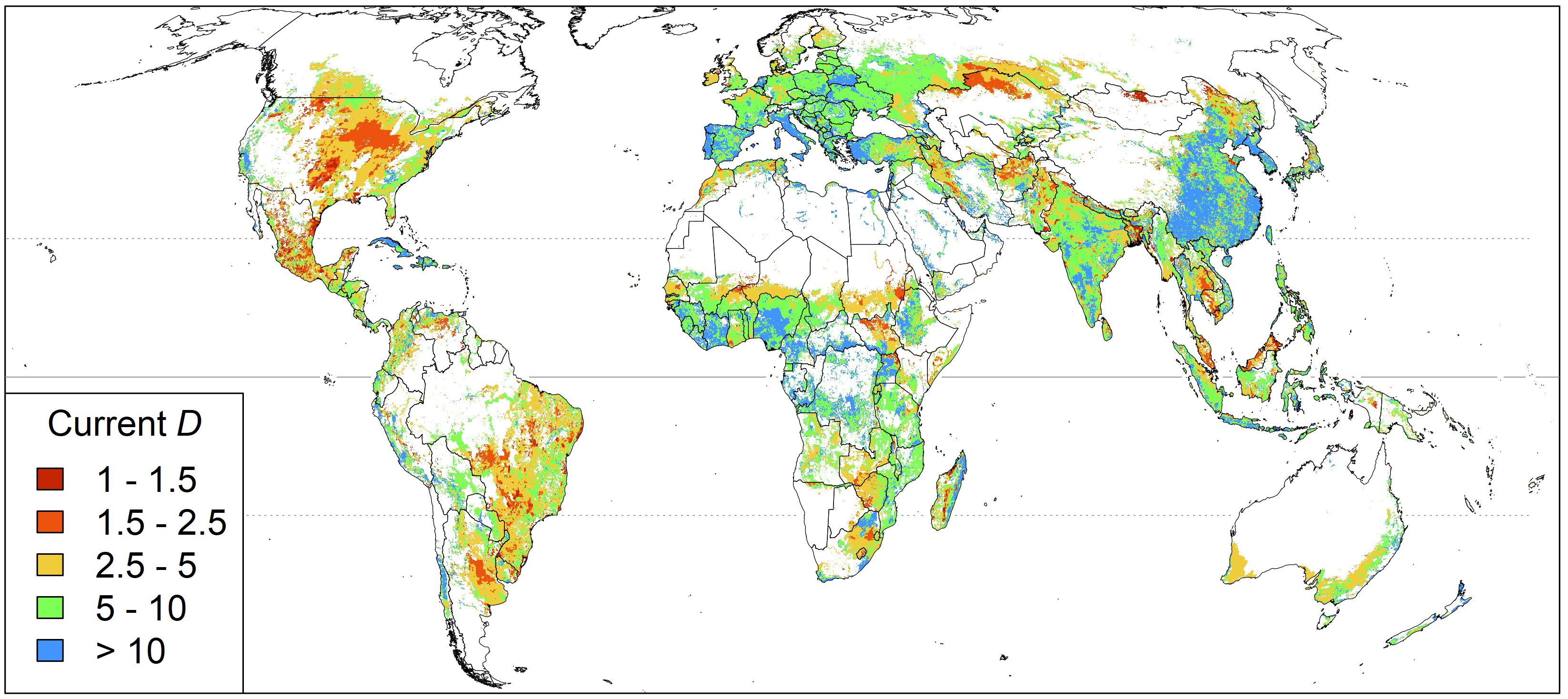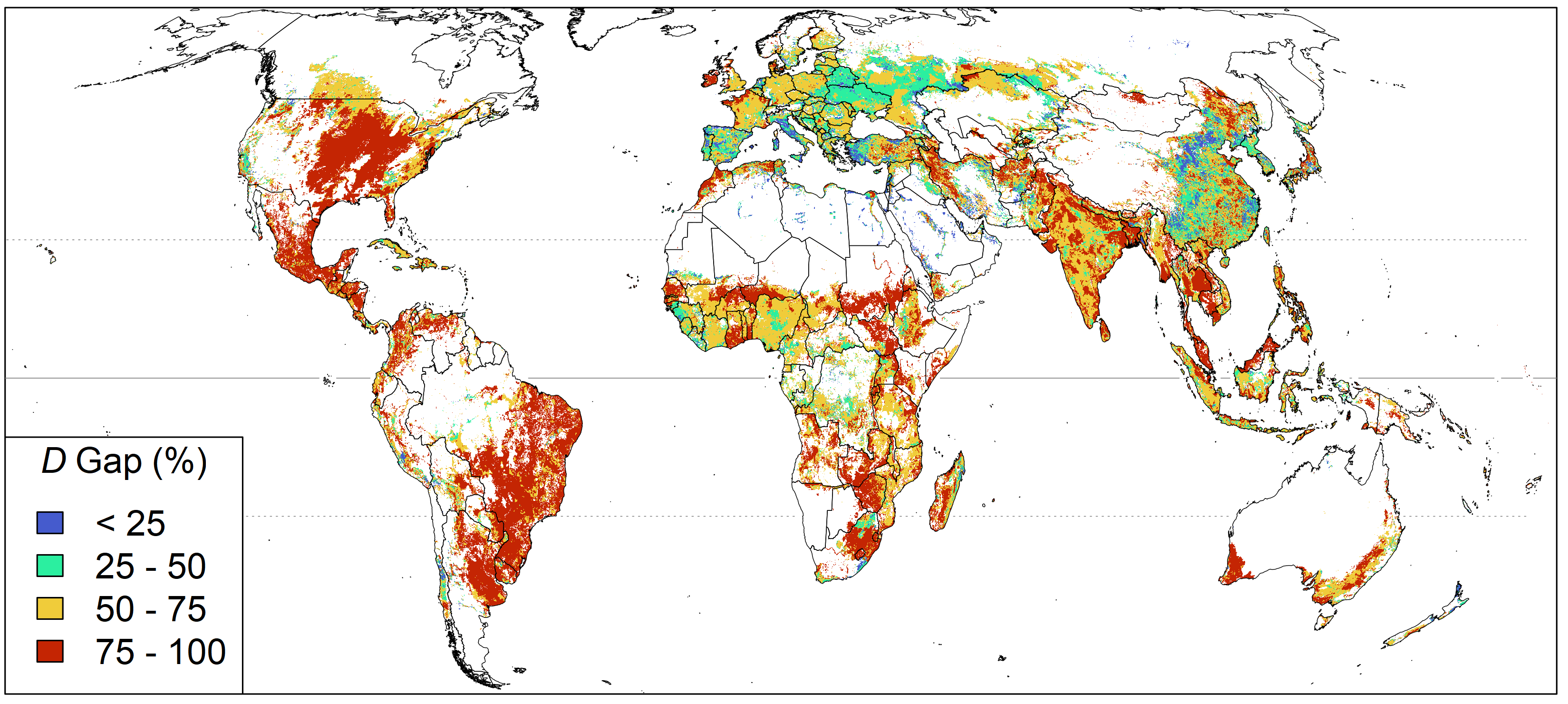- Scientific Selection – A Century of Increasing Crop Varietal Diversity in US Wheat. Whether you take into account the genetic relationship among varieties or not, breeding has been driving up wheat diversity in American fields. But anyone else think this is a bit of a straw man?
- Novel GBS-Based SNP Markers for Finger Millet and Their Use in Genetic Diversity Analyses. The Zimbabwean and Ethiopian landraces are different and should be crossed more to inject some diversity into improved varieties. You mean like they did for wheat in the US?
- On-Farm Diversity of Enset (Ensete ventricosum (Welw.) Cheesman) Landraces, Use, and the Associated Indigenous Knowledge in Adola Rede District, Guji Zone, Oromia, Ethiopia. No problem with diversity in enset, at least morphologically speaking.
- Food and Power in Early Medieval England: a lack of (isotopic) enrichment. Elite “Anglo-Saxon” males did not have a diet that was consistently higher in meat than anyone else at the time, so there. I wonder if any ever ate enset.
- Assessment of agrobiodiversity in the intensive agriculture: a case study of the Indo-Gangetic Plains of India. Could do with some more legumes.
- Community-based rangeland management in Namibia improves resource governance but not environmental and economic outcomes. Market incentives do not always work the way you think.
- The palm trees choose the places – Popular knowledge associated with the use and conservation of butiá (Butia spp.). No word on market incentives.
- Shoot tip cryotherapy for plant pathogen eradication. Especially good if combined with thermotherapy or chemotherapy. May even work on enset, for all I know.
- The phytoplasma associated with Bogia coconut syndrome in Papua New Guinea is a new phytoplasma in the group of the lethal yellowing syndromes (LYTS) of coconut and other palms. Yeah but will cryotherapy work?
- Implementation of species distribution models in Google Earth Engine. Shhh, or everyone will want to do it, and then where will we be.
- Genetic Diversity and Population Structure of Moroccan Beni Ahsen: Is This Endangered Ovine Breed One of the Ancestors of Merino? Maybe? Partly? Does it matter?
Nibbles: Jordanian seeds, Indian tubers, Himalayan fungi, American bees
- Jordan’s genebank in the news.
- Tuber Man of Kerala’s genebank in the news.
- Pricy Himalayan mushroom in the news, should probably be in a genebank.
- Bee breeders in the news. Probably a first.
Nibbles: Diversification, Heirloom greens, Forgotten fruit, Eat this meat, SPC lab
- We need to diversify the food system.
- Start with collard greens maybe?
- Continue with pawpaws.
- And do something about meat.
- Finally, open a molecular lab.
- Wait, what?
How diverse can croplands be?
A guest post from Fernando Aramburu Merlos on his recent paper with friend-of-the-blog Robert Hijmans.
Four species (wheat, rice, maize, and soybean) occupy half the world’s croplands. It has been argued that this means we cannot increase crop species diversity much without changing what we eat 1. Radically shifting our diets is a tall order, not just because changing habits is a challenge but also because we are so good at growing and processing the major crops. It’s an unfair race in which the major crops have a head start of millions of dollars and research hours.
We wanted to know how much crop diversity can be increased without changing the global food supply 2. So we estimated the attainable crop diversity, which is the highest level of crop species diversity you can get without changing the total production of each crop. To compute this, we “shuffled the cards and dealt again”: over 100 crops were distributed across the worlds’ existing croplands by allocating each to the most suitable land while considering the inter-specific competition for land.

It turned out that tropical and coastal regions can reach much higher levels of diversity than temperate and continental areas. Perhaps that is not especially surprising, but one implication is that we should not assume that all countries can achieve the same maximum levels of crop diversity 3. We also noted that attainable diversity cannot explain current diversity patterns very well. For example, the diversity gap, the difference between the current and the attainable diversity, is much higher in the Americas than in Europe and East Asia.

Diversity gaps, expressed as a percentage of the attainable diversity, are greater than 50% in 85% of the world’s croplands. Thus, in principle, crop diversity could double in the vast majority of the world without changing our heavy reliance on a few staple crops. So there must be strong forces at work that make farmers and regions specialize. For example, at the farm level, a high crop diversity may be difficult to manage, reduce economies of scale, and be costly if it comes at the expense of the most profitable crops.

It would be interesting to better understand what specific factors limit diversification in the regions with the largest crop diversity gaps, and how to reduce them. But more important questions need to be answered first. How much diversity is enough diversity? And is that the same for all regions? Some very low diversity systems appear to be highly sustainable (the flooded rice systems in Asia come to mind). A more spatially explicit and species-specific, functional understanding of the effect of diversity at the field scale would be helpful. Without that, diversity gaps are just an interesting emergent property of specialization, but not something that necessarily must be reduced.
Nibbles: American single malt, Gauguin’s coconut, World Seed Congress, Red gold, Kunming
- Will American single malt whiskey be a thing? Depends on the American barley.
- Is the fruit in Paul Gauguin’s Eü haere ia oe (Woman Holding a Fruit) a coconut? Have your say.
- Will the World Seed Congress sow a brilliant future? We shall see.
- Is the oil palm over in West Africa? Depends.
- Where are we with that post-2020 biodiversity deal? Nowhere much yet.